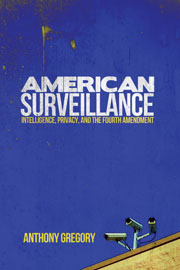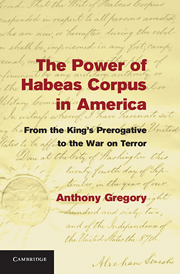Stephen Colbert’s presidential run was meant to be a joke, but his Super PAC has brought in some serious dough. In a report to the Federal Elections Commission last week, the PAC disclosed donations of more than one million dollars to date. The comedian was quoted in a letter to the agency: “How do you like me now, FEC?”
Colbert, along with fellow Comedy Central star Jon Stewart, has successfully made a mockery of presidential campaign laws. A few shenanigans in the last several weeks were intended to highlight the absurdity of the regulations. Barred by the law as a candidate from owning a Super PAC, Colbert transferred the funds to Stewart over minimal paperwork in a televised bit. They consulted an attorney on air to ensure that the two of them were not “coordinating” in violation of the campaign finance standards in place since the Citizens United Supreme Court decision two years ago.
The hilarious spectacle made a mockery of the legal distinction between a candidate “coordinating” with a Super PAC, which is forbidden, and a candidate “calling out to” a Super PAC to act in the “best interests” of the people. Colbert’s stunt was intended to make a comedic spectacle of Republican candidate Newt Gingrich’s recent claims that he called out to a Super PAC and did not overstep campaign regulations in his candidacy for president. Stewart and Colbert, enthusiastically sitting side-by-side on TV while sharing information about this exchange, walked right up to the line of what would be illegal. The entire gimmick, down to the name of the organization—The Definitely Not Coordinating With Stephen Colbert Super PAC—was a very effective satire.
Stewart, playing the persona of a cagey campaign ad huckster, seemed particularly ecstatic about the unlikelihood of criminal liability. Even if they violated the coordination law, Stewart would only face a heavy fine, rather than prison time, as the two comedians were quick to note during an episode of Stewart’s The Daily Show.
These antics, humorous as they may be, raise a serious question. Presumably, Stewart and Colbert (and most left-leaning members of the media) find the campaign finance regulations concerning PACs to be far too lenient. This implies that if the restrictions better reflected morality, the two comedians would be violating the law. Whereas most civil disobedience targets unjust laws that should not be on the books, these TV personalities are apparently acting out to promote what they think should be a law.
Yet, what if citizens began to adopt this same approach to protest perceived “holes” in the justice system? Imagine if, say, assault was legal, but the argument was that it shouldn’t be? Would a comedian assault a random person on the street to prove that it is absurd that he has the freedom to do so? Of course not. So what makes this “comedic” stunt any different?
It could easily be countered that Stewart and Colbert were only making a point, practicing free speech to ridicule the system, rather than actually vying for power. On the other hand, it is clear that many do not see campaign money for serious campaigns as “free speech” at all. In recent weeks, on the second anniversary of the Citizens United decision that struck down parts of the McCain-Feingold campaign law of 2002 and allowed for Super PACs, activists under the banner “Occupy the Courts” protested this ruling, exercising their own free speech rights to dissent from this ruling’s own interpretation of the First Amendment.
How does Stewart and Colbert’s deal differ from serious campaign supporters and candidates? Here, we finally arrive at what seems so obviously reasonable to so many people about campaign finance restrictions: politicians are not simply exercising political speech to speak out for or against a particular policy. Rather, they are attempting to acquire and assert greater power to manipulate the economy and enforce their will on society. This conclusion is responsible for the creation of modern restrictions to prevent money from corrupting politics.
However, we may be ignoring the bigger picture. Perhaps the problem is not money in politics, but politics in money. If the government has such an influence over the economy, how can it help but be controlled by special interests looking for unfair advantages over the competition? Indeed, world history books will show this to be the norm rather than the exception, which begs the questions: Is the state doomed to inherent corruption and immoral tendencies? If so, should it thus be defanged, rather than allocated another form of control over the people in the name of campaign finance reform?
The ACLU rigorously opposed the McCain-Feingold campaign finance law for a very important reason. There is a serious free-speech issue at play. And how has the McCain-Feingold law been exercised? In one case, to censor Michael Moore’s Fahrenheit 9/11 ads from being aired close to the 2004 presidential election. Why? Because Moore’s commercial was a criticism of a candidate—George W. Bush. The law determined that the ad amounted to money that was unfairly influencing politics. Bush, meanwhile, would have the advantage of the public pulpit, from which he could speak out any time he wanted.
This example really cuts to the core of the irony in campaign finance reform. Most candidates in federal Congress are reelected. These representatives have access to the public airwaves through their positions of political power. The only way to allow for public discourse is through the application of private money for disseminating alternative messages. The 1968 independent campaign of anti-war Democrat Eugene McCarthy was only possible because he raised significant funds from a small number of wealthy ideological supporters. McCarthy was a plaintiff in Buckley v. Valeo, claiming that the federal government’s post-Watergate campaign finance laws were effectively silencing opposition. More recently, Ross Perot’s third-party candidacy, one of the most successful challenges to the two-party system in U.S history, was only possible because he personally financed it.
Ironically, many leftists point to the last few decades as proof of increasingly rampant political graft, corruption, corporate influence, and widening wealth gaps. Yet, this same period was responsible for producing America’s strictest campaign finance restrictions—from Buckley v. Valeo in 1976 to Citizens United in 2009. Nevertheless, they paradoxically think that federal restrictions on candidates and their advocacies are the problem, rather than the power that comes with the office at stake.
There is no way to divorce corruption from politics, since politics is a struggle over state power and we know that power corrupts. Giving government more control over elections is the exactly wrong approach. Campaign finance restrictions are not the answer; curbing government power is. In a free society, Stewart and Colbert’s satirical stunt would have been inconsequential. They would be allowed to coordinate in private or in public. They could do so, whether they were running for presidential office or not. In a free society, we wouldn’t need to fear money in politics, because politicians themselves would have such limited power that it wouldn’t matter who financed their ads.








